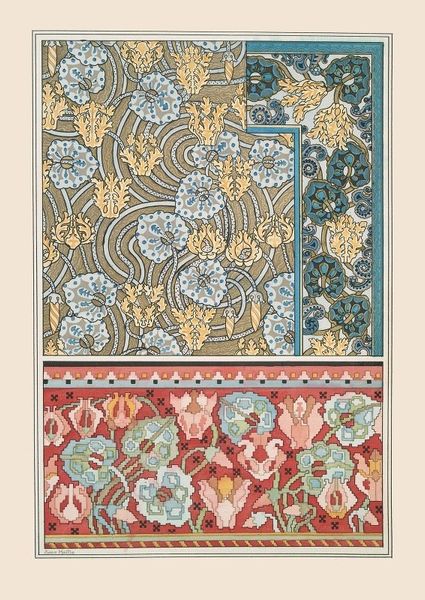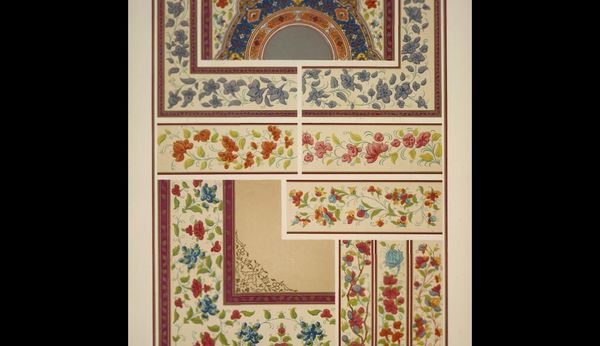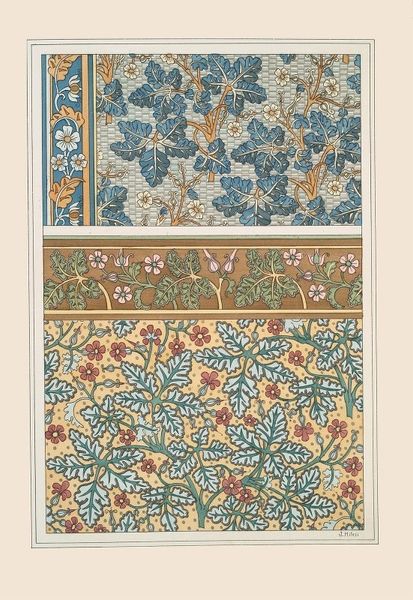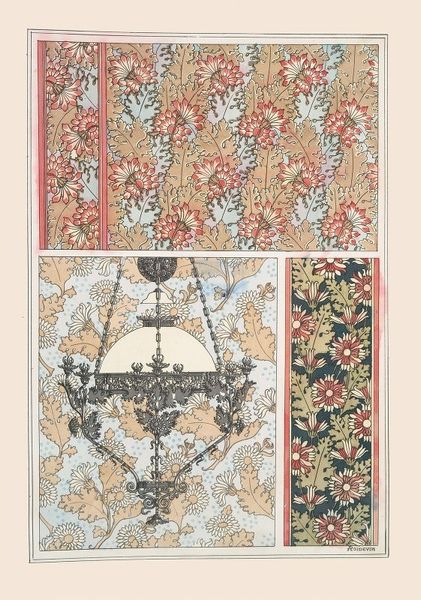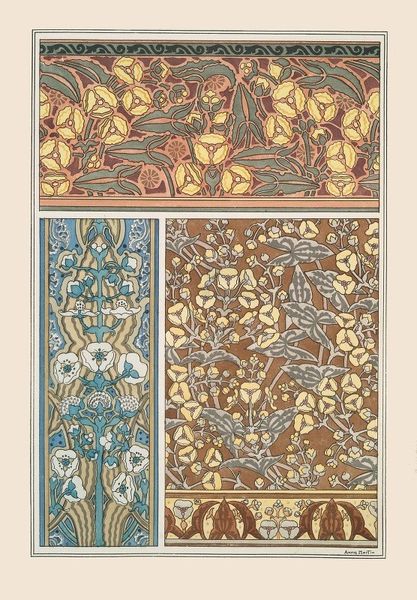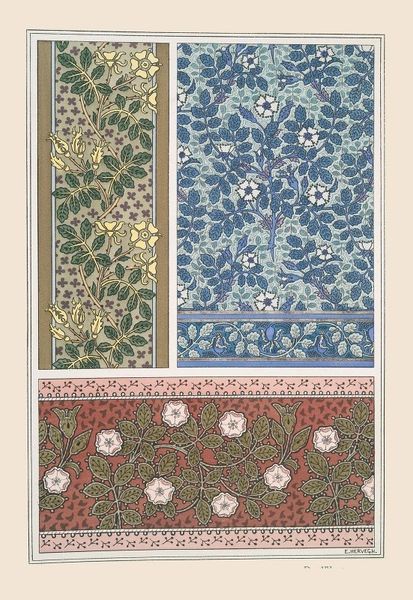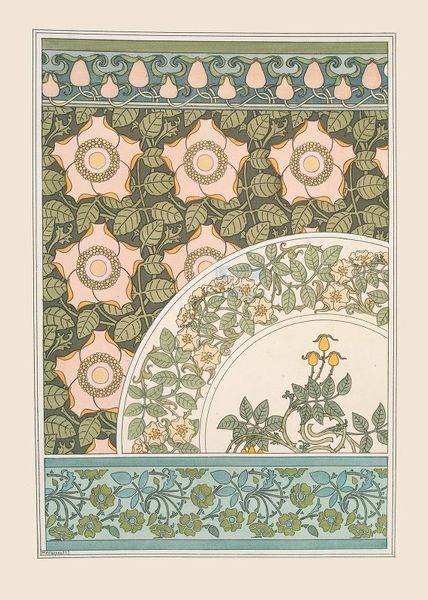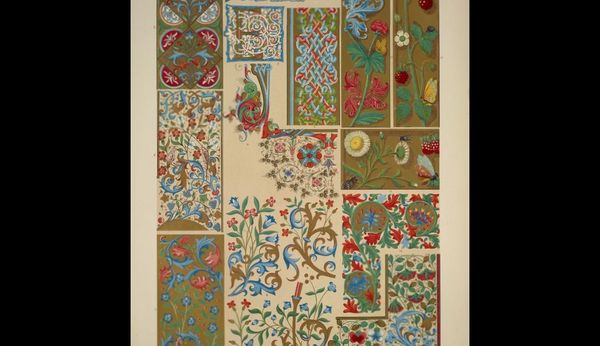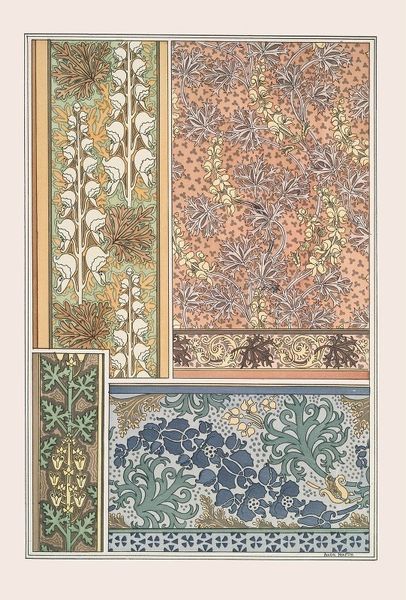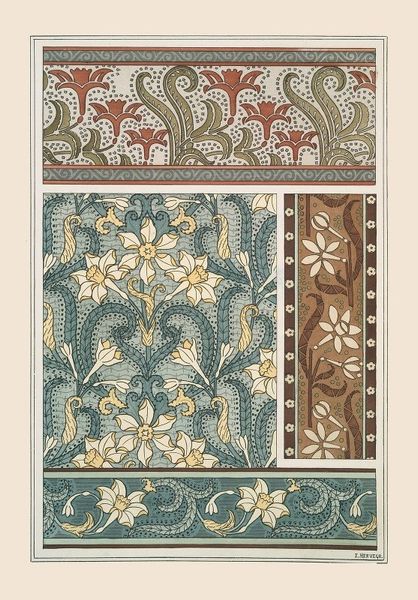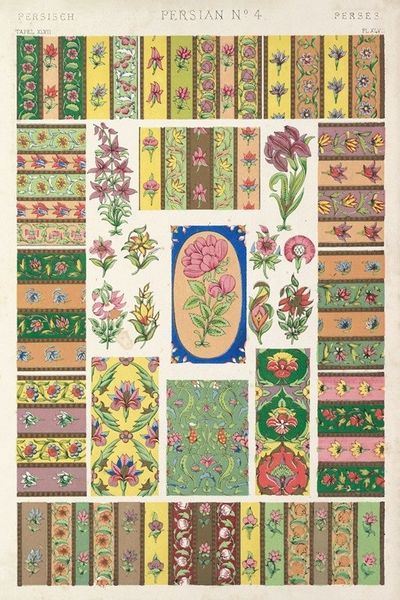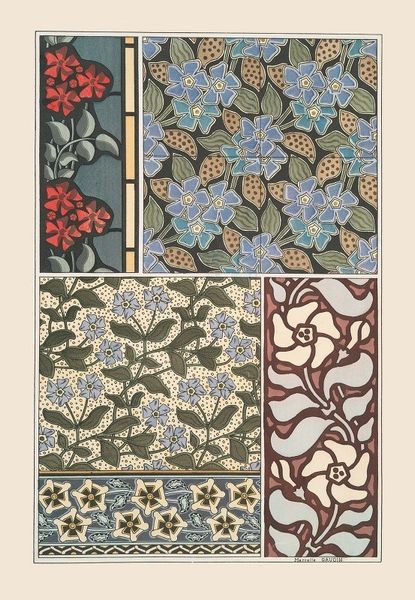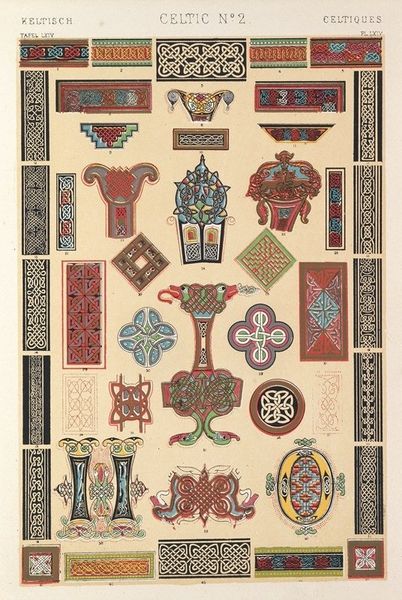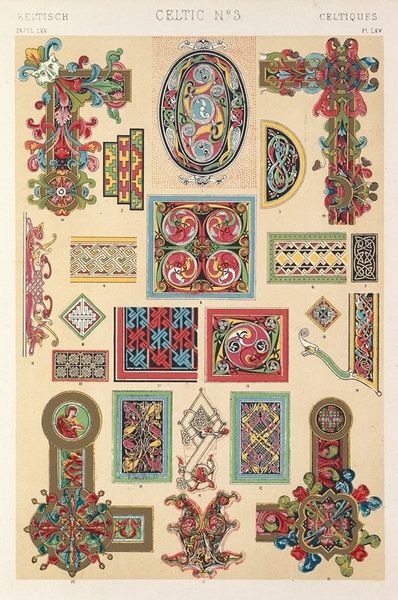
drawing, print
#
drawing
# print
#
pattern
#
asian-art
#
decorative-art
Copyright: Public Domain: Artvee
Owen Jones created "Persian No. 5", a chromolithograph, as part of his study of historical ornament. Jones was a central figure in the 19th century design reform movement, which sought to improve the quality of British design by studying historical examples, particularly non-Western ones. Here, Jones draws on the visual culture of Persia, modern-day Iran, in the form of floral designs, and geometric patterns. Persian art, due to its highly developed geometry, offered an alternative to the dominant conventions of European design at the time. Jones's most influential work, "The Grammar of Ornament", published in 1856, served as a pattern book for designers and architects. It became a foundational text for the British Arts and Crafts movement, who looked to designs of the past as a way to ennoble the industrial present. Understanding Jones's work requires delving into the history of design reform, the British education system, and the social and cultural exchanges between Europe and the Middle East during the 19th century. This context reveals the complex interplay between art, commerce, and cultural exchange.
Comments
No comments
Be the first to comment and join the conversation on the ultimate creative platform.
